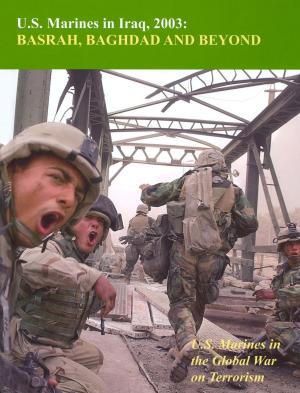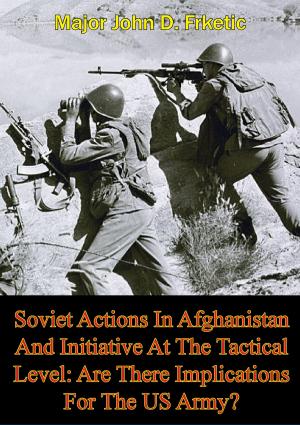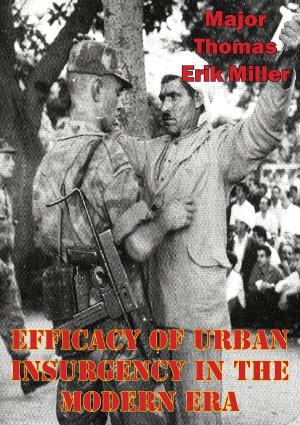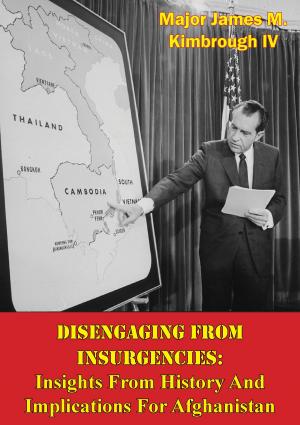1979 And The Re-Emergence Of The Islamic Empire
Nonfiction, History, Middle East, Persian Gulf War, Military| Author: | Major Thomas M. Hough | ISBN: | 9781782896128 |
| Publisher: | Tannenberg Publishing | Publication: | August 15, 2014 |
| Imprint: | Tannenberg Publishing | Language: | English |
| Author: | Major Thomas M. Hough |
| ISBN: | 9781782896128 |
| Publisher: | Tannenberg Publishing |
| Publication: | August 15, 2014 |
| Imprint: | Tannenberg Publishing |
| Language: | English |
In 1979 the age old struggle for the control of Islam between the Shiite and Sunni sects re-emerged in the Middle East. Four events occurred in 1979 that defined the context of contemporary Middle Eastern politics: the Islamic revolution in Iran, the signing of the Egyptian-Israeli peace accords, the siege of the Grand Mosque in Mecca, Saudi Arabia, and the Soviet invasion of Afghanistan. This monograph directly addresses the roots of current Middle Eastern actors such as HAMAS, FATA, Hezbollah, Al-Qaida, and the Taliban in the aftermath of these four critical events that occurred in 1979.
The methodology for this monograph consists of analyzing each of these four events and then synthesizing this information in order to determine how 1979 shaped the modern Middle East. Since the seventeenth century the Sunni sect dominated Islam. The Iranian revolution reenergized the Shiite sect throughout the Middle East while Sunni power simultaneously eroded throughout the region. While the Shiites were inspiring the Islamic community in 1979, the Sunni suffered significant blows to their legitimacy as the leaders of Islam.
This monograph asserts that the prevailing conflict within the Middle East is first and foremost a contest between the Shiites and the Sunni for preeminence within the Islamic world. The conflict between Islam and the outside world remains secondary in importance. The contemporary Middle Eastern actors that dominate the western consciousness such as HAMMAS, FATA, Hezbollah, Al-Qaida, and the Taliban constitute proxy armies created by the Shiite and Sunni leadership to wage a war for influence within the Islamic world. The events of 1979 have resulted in a leveling of power in the Middle East and the emergence of the Shiites as an ideological peer competitor to the traditionally dominant Sunni.
In 1979 the age old struggle for the control of Islam between the Shiite and Sunni sects re-emerged in the Middle East. Four events occurred in 1979 that defined the context of contemporary Middle Eastern politics: the Islamic revolution in Iran, the signing of the Egyptian-Israeli peace accords, the siege of the Grand Mosque in Mecca, Saudi Arabia, and the Soviet invasion of Afghanistan. This monograph directly addresses the roots of current Middle Eastern actors such as HAMAS, FATA, Hezbollah, Al-Qaida, and the Taliban in the aftermath of these four critical events that occurred in 1979.
The methodology for this monograph consists of analyzing each of these four events and then synthesizing this information in order to determine how 1979 shaped the modern Middle East. Since the seventeenth century the Sunni sect dominated Islam. The Iranian revolution reenergized the Shiite sect throughout the Middle East while Sunni power simultaneously eroded throughout the region. While the Shiites were inspiring the Islamic community in 1979, the Sunni suffered significant blows to their legitimacy as the leaders of Islam.
This monograph asserts that the prevailing conflict within the Middle East is first and foremost a contest between the Shiites and the Sunni for preeminence within the Islamic world. The conflict between Islam and the outside world remains secondary in importance. The contemporary Middle Eastern actors that dominate the western consciousness such as HAMMAS, FATA, Hezbollah, Al-Qaida, and the Taliban constitute proxy armies created by the Shiite and Sunni leadership to wage a war for influence within the Islamic world. The events of 1979 have resulted in a leveling of power in the Middle East and the emergence of the Shiites as an ideological peer competitor to the traditionally dominant Sunni.



![Cover of the book Conquering The Night — Army Air Forces Night Fighters At War [Illustrated Edition] by Major Thomas M. Hough](https://www.kuoky.com/images/2015/november/300x300/9781786252371-lfdB_300x.jpg)










![Cover of the book Fueling the Fires of Resistance — Army Air Forces Special Operations in the Balkans during World War II [Illustrated Edition] by Major Thomas M. Hough](https://www.kuoky.com/images/2015/november/300x300/9781786252401-xnBm_300x.jpg)
![Cover of the book Block By Block: The Challenges Of Urban Operations [Illustrated Edition] by Major Thomas M. Hough](https://www.kuoky.com/images/2014/august/300x300/9781782897781-zM5J_300x.jpg)